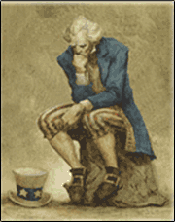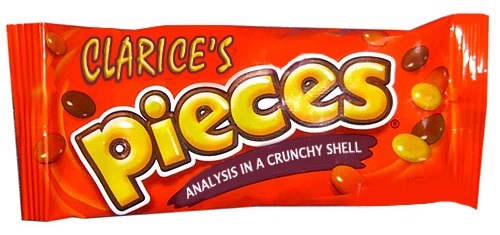
–>
May 8, 2022
Much has been written this week about the pro-abortionists’ plans to picket the homes of the six Republican-appointed justices over the egregiously leaked Alito draft overturning Roe v. Wade. Those criticisms, which I summarize below, are certainly valid. If we had an attorney general who cared about enforcing the law, he’d seek injunctive relief and criminal penalties for such conduct. If AG Merrick Garland fails to do so, the attorney general of Virginia, Jason S. Miyares, may step in to preclude any such protests in his state. But I think the rowdies got their ideas from Chief Justice Roberts’s strange role in the ObamaCare case mandate challenge and in the Left’s success in rampaging and terrorizing the country after the death in custody of George Floyd.
‘); googletag.cmd.push(function () { googletag.display(‘div-gpt-ad-1609268089992-0’); }); }
When I want a good legal analysis, one of the first places I turn to is the Volokh Conspiracy, and in particular, the lucid and persuasive analyses by Professor Eugene Volokh. This week he explains why picketing the judges’ residence with the intent to influence them violates federal law. (And the intent is to influence, obviously because this is just a draft, not a final, opinion.)
The relevant statute is 18 U.S.C. Sec.1507 which reads:
1. Whoever, with the intent of interfering with, obstructing, or impeding the administration of justice, or
‘); googletag.cmd.push(function () { googletag.display(‘div-gpt-ad-1609270365559-0’); }); }
2. with the intent of influencing any judge, juror, witness, or court officer, in the discharge of his duty,
3. pickets or parades in or near a building housing a court of the United States, or
4. in or near a building or residence occupied or used by such judge, juror, witness, or court officer, or
5. with such intent uses any sound-truck or similar device or resorts to any other demonstration in or near any such building or residence,
6. shall be fined under this title or imprisoned not more than one year, or both.
Previous courts recognizing that the State “has a legitimate interest in protecting its judicial system from such bullying tactics and maintaining a fair and orderly administration of justice have ruled that such outside influence may be banned without interfering with constitutional rights of free speech and assembly.”
‘); googletag.cmd.push(function () { googletag.display(‘div-gpt-ad-1609268078422-0’); }); } if (publir_show_ads) { document.write(“
Interestingly, this section was amended by the crime bill of 1994, which removed the $5,000 limit on fines for violating this section, a law which James Freeman notes was passed with the support of Senator Joe Biden and co-sponsored by then-representative Charles Schumer.
These days, the supremely oleaginous Schumer said that Supreme Court justices “won’t know what hit them” if they supported anything like the Alito draft overturning Roe. (He later said he regretted that clearly threatening remark but never apologized for it.)
Indeed, it seems that Schumer is not alone in thinking that if you don’t like the way a ruling is going you can bully judges into changing their minds.
Democratic representative Karen Bass on ABC stunned T.J. Holmes of that network with remarks like this:
I’m glad it was leaked, because now maybe, just maybe, the justices will rethink this as they see the outrage spread across the country. We know that — or at least we are hearing, that some vote took place, but we also know in the process before a final decision is made there could be other drafts. We have to see that the Chief Justice is going to do. So, maybe, it provides a little bit of hope that this will not ultimately be the decision of the Supreme Court.
If that is not an admission of an attempt to influence the Supreme Court justices in the “discharge of their duty,” what is?
The Chief Executive — Joe Biden — has said nothing to dissuade such conduct and his spokesperson Jen Psaki mumbled some mush about peaceful protesting when asked directly about the president’s position.
 The threats are so serious that Justice Alito was this week forced to skip a scheduled public appearance.
The threats are so serious that Justice Alito was this week forced to skip a scheduled public appearance.
Given the attorney general’s history of partisanship, absent an indication from the White House that they want him to act, he won’t. Laws don’t enforce themselves and subservient government officials don’t usually grow spines.
On the other hand, three of the targeted justices live in the Virginia suburbs and Virginia has both a relevant law banning such intimidation of the judiciary and an attorney general less pusillanimous than Garland.
Virginia Code Section 18.2-418 states:
It is hereby declared that the protection and preservation of the home is the keystone of democratic government; that the public health and welfare and the good order of the community require that members of the community enjoy in their homes a feeling of well-being, tranquility, and privacy, and when absent from their homes carry with them the sense of security inherent in the assurance that they may return to the enjoyment of their homes…
….that the practice of picketing before or about residences and dwelling places causes emotional disturbance and distress to the occupants; that such practice has as its object the harassing of such occupants; and without resort to such practice, full opportunity exists, and under the terms and provisions of this article will continue to exist, for the exercise of freedom of speech and other constitutional rights
Police can arrest protesters at Supreme Court Justices’ homes in Virginia. Virginia Code 18.2-419:
Any person who shall engage in picketing before or about the residence or dwelling place of any individual, or who shall assemble with another person or persons in a manner which disrupts or threatens to disrupt any individual’s right to tranquility in his home, shall be guilty of a Class 3 misdemeanor. Each day on which a violation of this section occurs shall constitute a separate offense.
Last, Virginia courts are given the power to stop all protests at a Virginian’s home. Better yet, courts have the power to award punitive damages against any protester who violates this Virginia law. Again, Section 419:
Notwithstanding the penalties herein provided, any court of general equity jurisdiction may enjoin conduct, or threatened conduct, proscribed by this article, and may in any such proceeding award damages, including punitive damages, against the persons found guilty of actions made unlawful by this section.
The left is blowing through the firewalls of decency. They have promised protests at Catholic churches this weekend. They have vandalized other churches. They have behaved like other monsters throughout history who despise democratic institutions. There is no doubt more unhinged behavior to come. At least in the Commonwealth of Virginia, consequences can follow.
Indeed, Virginia Governor Glenn Youngkin just ordered the state police to monitor protests at the homes of Supreme Court justices.
Justice Clarence Thomas said that the Court will not be bullied. Chief Justice Roberts angrily deplored the attempt to do so.
Unfortunately, the idea that such tactics work can, in my view, be laid at the feet of Justice Roberts himself. In the face of ginned-up public support in the major media for Obama and ObamaCare, he clearly changed his mind on the constitutionality of the mandate in ObamaCare, calling it a tax — something that “every lower court that heard the health-care cases rejected.” Something that the Congress rejected — having explicitly called it a “regulatory penalty.”
It was widely believed at the time that Roberts did this legal macarena because he was cowed by the fear of the crowd. And as the Wall Street Journal observed at the time, there is evidence of his shake and shimmy in the opinion itself:
One telling note is that the dissent refers repeatedly to “Justice Ginsburg’s dissent” and “the dissent” on the mandate, but of course they should be referring to Ruth Bader Ginsburg’s concurrence. This wording and other sources suggest that there was originally a 5-4 majority striking down at least part of ObamaCare, but then the Chief Justice changed his mind.
The Justices may never confirm this informed speculation. But if it is true, this is far more damaging to the Court’s institutional integrity that the Chief Justice is known to revere than any ruling against ObamaCare. The political class and legal left conducted an extraordinary campaign to define such a decision as partisan and illegitimate. If the Chief Justice capitulated to this pressure, it shows the Court can be intimidated and swayed from its constitutional duties. If this was a play to compete with John Marshall’s legacy, the result is closer to William Brennan’s.
Every kid on the playgrounds I grew up on knew that if you showed fear before bullies, they’d be stealing your lunch money next. Roberts’ inexplicable kowtow on ObamaCare in my view only encouraged more of these bullying tactics today.
<!– if(page_width_onload <= 479) { document.write("
“); googletag.cmd.push(function() { googletag.display(‘div-gpt-ad-1345489840937-4’); }); } –> If you experience technical problems, please write to helpdesk@americanthinker.com
FOLLOW US ON
<!–
–>
<!– _qoptions={ qacct:”p-9bKF-NgTuSFM6″ }; ![]() –> <!—-> <!– var addthis_share = { email_template: “new_template” } –>
–> <!—-> <!– var addthis_share = { email_template: “new_template” } –>




